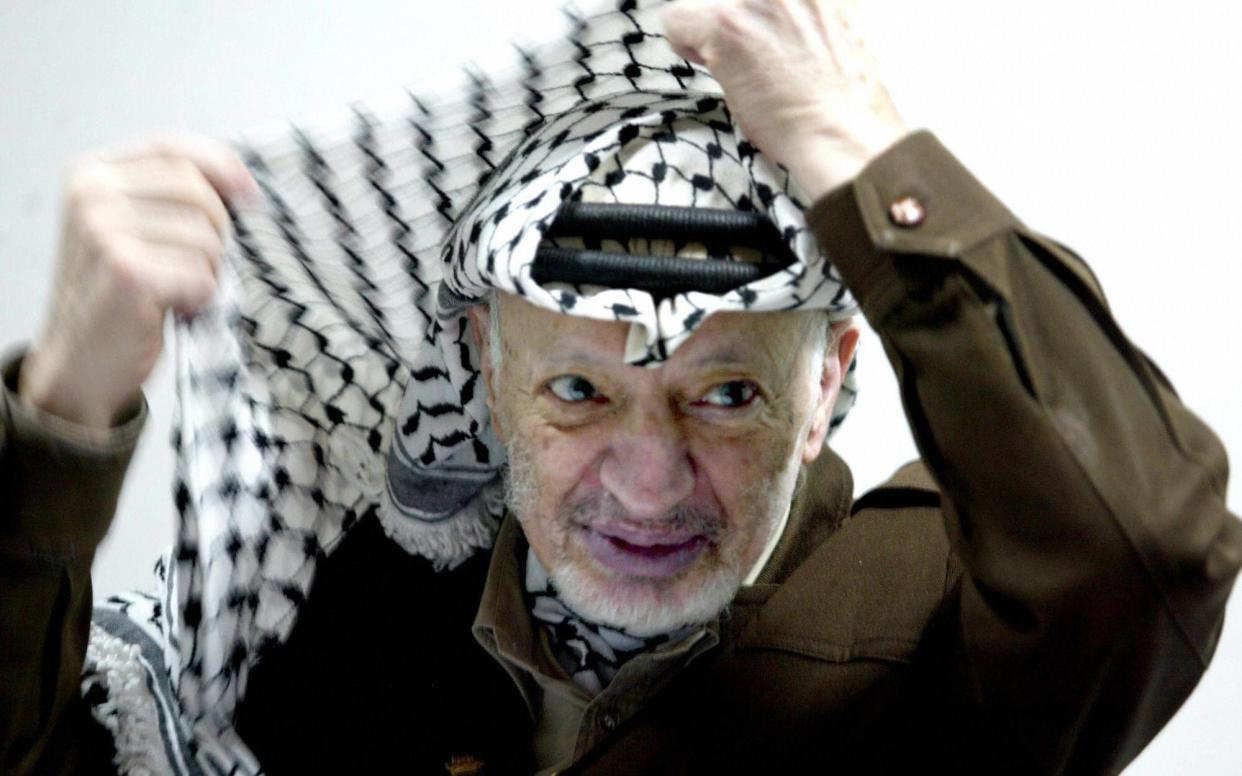The keffiyeh isn’t a fashion statement. To me, it’s a symbol of hatred

I never much liked seeing the keffiyeh worn casually as a fashion statement. But since October 7, the cotton scarf – most closely associated in modern times with Yasser Arafat, terrorist Leila Khaled and the violent Palestinian “resistance movement” – has really come into its own. It now plainly seems to be just a symbol of the desire for Hamas to continue its “resistance” against Israel. When I see a keffiyeh now, I see an anti-Semitic blood libel – whereas before I left room for doubt.
Nonetheless, I decided this week to lightly test my sense that it was always bad news. Maybe some who wear it really want peace in good faith, and don’t want my sort – “Zionists” – dead.
Over my morning coffee in a local cafe, I noticed a woman (it was impossible not to), wearing a stomach- and back-bearing strappy top, with long, sexy hair, snogging her boyfriend. Over her bare belly and back was tied a keffiyeh.
Given that it was a Jewish area, and given how there had been recent attacks on Jewish boys nearby, and given how many anti-Israel stickers and ripped hostage posters and ugly slanderous placards and slogans and murderous chants we’ve all had to see in every city centre and campus in the country, I just got fed up.
She caught me staring at her disapprovingly and gestured in a hostile fashion. I asked if she knew she couldn’t wear what she was wearing under the regimes she was celebrating with her keffiyeh.
Within moments she was yelling at me about how much she hated “Zionists”, laughed when I said Jews were trying to avoid another Holocaust, and insisted she could wear what she was wearing in Gaza.
I felt it was a grim but timely reminder: Jews are right to feel mortally offended by the keffiyeh. And so should everyone else.


